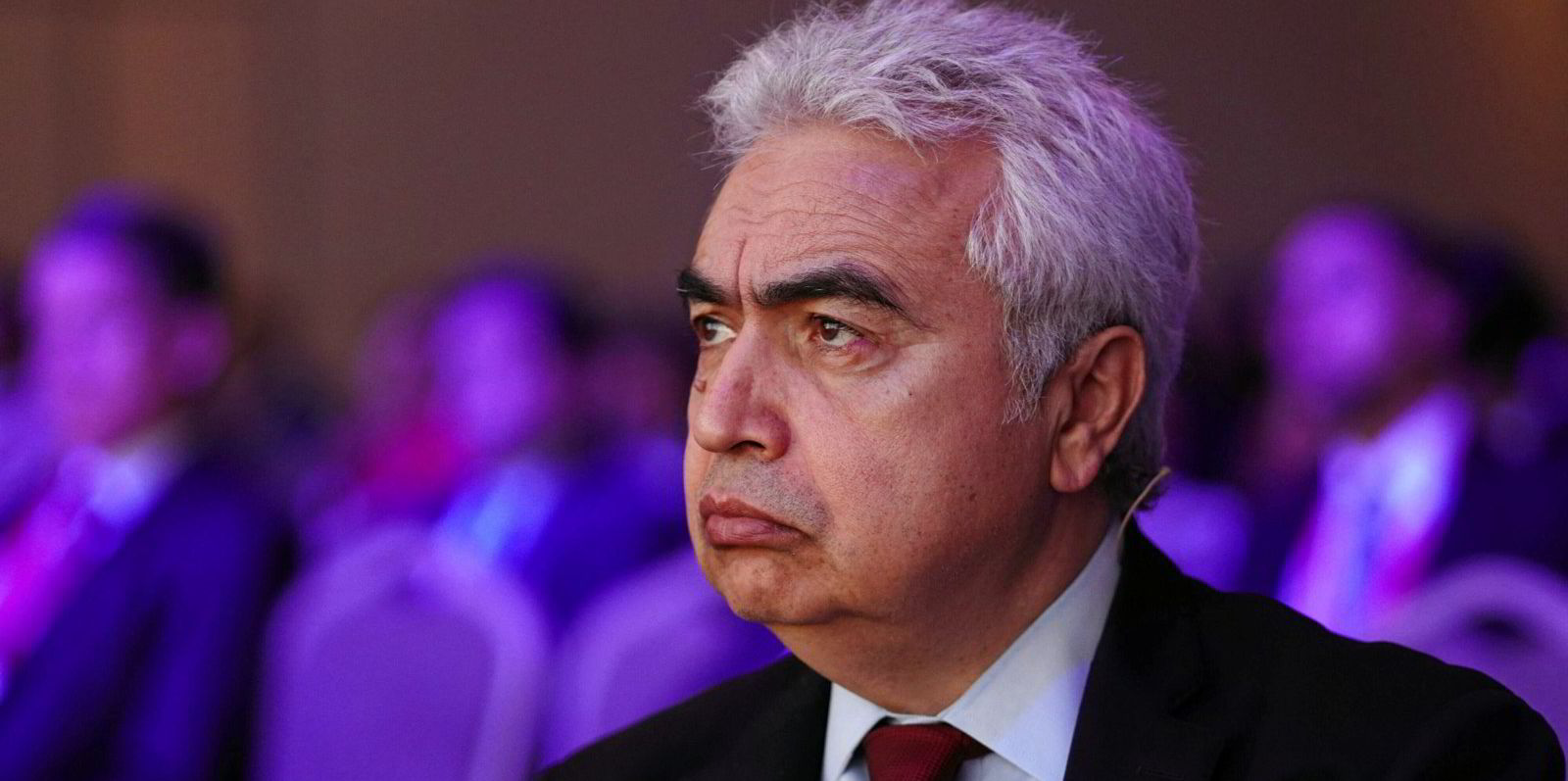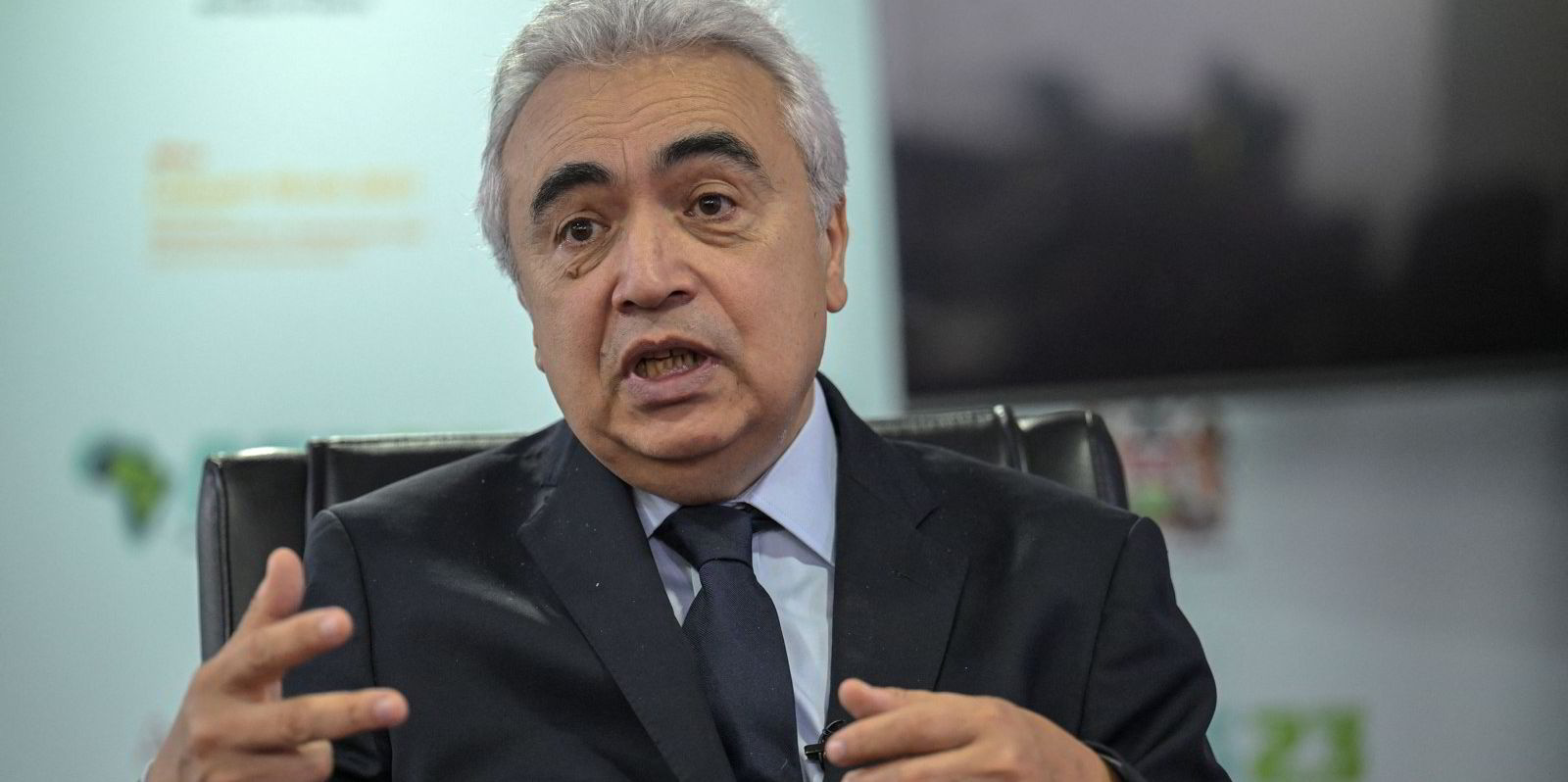There is some irony that the International Energy Agency was set up half a century ago to deal with an oil and tanker embargo in the Middle East. This week, the Paris-based organisation put forward the same argument as it did then: the West needs to reduce its dependence on crude, at least from unstable parts of the world.
The difference this time around is that the climate crisis has pushed ahead of the geopolitical risk in the IEA’s priorities in the need for lower fossil fuel use.
The IEA’s annual World Energy Outlook 2023 says oil, gas and coal use is still “far too high” to meet the United Nations’ Paris climate agreement target of holding global temperatures to 1.5C (above pre-industrial levels), and more needs to be done to meet that target.
However, the IEA anticipates enormous changes towards decarbonisation in the coming years that will majorly impact energy and tankers.
Firstly, it predicts that total world oil demand will peak before the end of this decade — not least due to the enormous growth in electric vehicles.
It points out that in 2020, global sales of electric vehicles accounted for 4% of the total, but that figure is barrelling towards 18% this year. The IEA is now predicting that half of all car sales in the US will be electric vehicles by 2030. This compares with the IEA’s estimate of 12% two years ago.
It is worth saying the IEA bills itself as the “authoritative source of world energy analysis and projections” but has repeatedly underestimated the speed of clean technology growth.
It now seems keen to get ahead of the curve with its oil demand peak pre-2030, a prediction dismissed as “ideological” and not fact-based by the oil producers of Opec.
The Saudi Arabia-led cartel itself insists that oil demand will keep growing until 2045 — something US oil majors ExxonMobil and Chevron Corp appear to agree with. They have recently spent $110bn between them buying new oil and gas assets through separate mega-mergers.
Regardless, the IEA argues this week that the move to cleaner energy is “unstoppable” and has been accelerated by the disruption to oil and gas supplies caused by the Russian invasion of Ukraine. Fears that the war around Gaza could escalate and suck in oil-producing nations such as Iran have kept Brent crude prices at $90 per barrel this week.
Concern about fuel shortages has also led the US to patch relations with Venezuela and ease sanctions.
The IEA expects a similar Washington move eventually with Iran, although the Gaza conflict could delay that. Behind the scenes, the US has already been easing off the enforcement of tankers, leading to Iranian oil exports and tanker activity reaching a five-year high in recent months.
Regardless of the circumstances, the IEA expects an almost 20% increase in tanker tonne-miles by 2030, which is good news for shipowners.
This is at a time when there is minimal new tanker capacity coming out of the shipyards, bringing expectations of higher freight rates in the near years ahead.
The US-Venezuela deal alone — as of last week operating for a trial six months — is expected to lead to more oil going to North America and Europe rather than China, meaning lower seaborne distances.
But it would allow more traditional Western shipowners to muscle in on a trade left to the “shadow fleet”, which is willing to operate under the radar, as it were.
Meanwhile, the IEA has laid a blueprint for the world to meet the 1.5C target of the Paris Agreement.
This would involve global efforts to cut fossil fuel demand by 25% between now and 2030 and triple global renewable capacity.
It would simultaneously mean tripling clean energy investments in emerging and developing economies while slashing methane leaks from fossil fuel operations by 75%.
This is what needs to be done. It would reduce dependence on an oil-rich but unstable Middle East and is all technically possible.
But is it likely at a time of soaring inflation, high-interest rates and near economic stagnation — never mind the weight of vested interest? Tankers seem set fine for the coming period either way.





